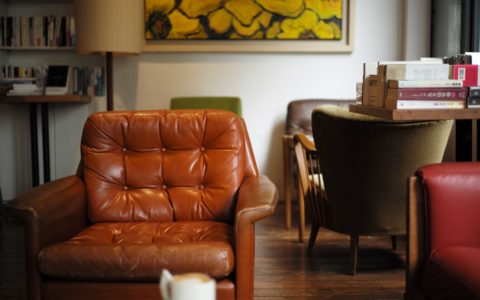How To Treat Anxiety Without Using Medication
Missy Neill
 Anxiety can be debilitating with the excessive worry and physical effects such as racing heart, sweaty hands, trouble sleeping, and numerous other unpleasant symptoms.
Anxiety can be debilitating with the excessive worry and physical effects such as racing heart, sweaty hands, trouble sleeping, and numerous other unpleasant symptoms.When clients come into my office with an anxiety disorder, I am often asked about non-pharmaceutical options to try first. I think it is a good plan to try to learn skills for managing their anxiety as they try to uncover the underlying issues and triggers.
How to Treat Anxiety Without Using Medication
A few things that clients have done to reduce their anxiety symptoms without using medication include:
- Cognitive Behavioral Therapy (CBT)
- Self-Care
- Massage
- Yoga
- Acupuncture
Cognitive Behavioral Therapy (CBT)  CBT is one of the most effective ways to treat anxiety without medication and is a treatment option that a professional counselor would use with you in a therapeutic setting. Anxiety overestimates the likelihood that something is going to happen, while CBT attempts to reframe both the way we think and the way we understand our behavioral patterns. By learning CBT, a client can learn to transform negative thinking patterns into more rational thoughts and improve emotional regulation.
CBT is one of the most effective ways to treat anxiety without medication and is a treatment option that a professional counselor would use with you in a therapeutic setting. Anxiety overestimates the likelihood that something is going to happen, while CBT attempts to reframe both the way we think and the way we understand our behavioral patterns. By learning CBT, a client can learn to transform negative thinking patterns into more rational thoughts and improve emotional regulation.
Progressive muscle relaxation also falls under this category. A therapist can teach a client relaxation breathing techniques that will help them with the negative physiological symptoms such as muscle tightness and psychosomatic symptoms.
Self-Care
Mental, physical, and spiritual self-care is a critical component if you want to manage your anxiety without medication.
 Mental self-care can include breathing exercises or journaling; physical self-care involves any type of exercise; and spiritual self-care includes time with God such as prayer, Church attendance, or Bible study.
Mental self-care can include breathing exercises or journaling; physical self-care involves any type of exercise; and spiritual self-care includes time with God such as prayer, Church attendance, or Bible study.The overall goal is to practice techniques that will cause you to be more present in the here and now, bringing self-awareness of how you are feeling and responding to stressors or stimuli.
Massage
Massage can be a great way to help reduce tension and anxiety but will not solve the underlying problem that is causing the anxiety. Usually, people complain of tight muscles and tension dealing with anxiety and massage can be a great way to get some physical relief even if it’s for a brief time.
Yoga
 Some therapists are now incorporating yoga into their practices. As a Christian therapist, when I refer to Yoga I’m referring to the principles of relaxation and mindfulness and not Buddhism or other non-Christian practices.
Some therapists are now incorporating yoga into their practices. As a Christian therapist, when I refer to Yoga I’m referring to the principles of relaxation and mindfulness and not Buddhism or other non-Christian practices.Yoga can help modulate the stress response and it has become increasingly popular in recent years. Yoga increases mental clarity through the use of poses and breathing techniques.
Acupuncture
Acupuncture is an alternative form of medicine based on traditional Chinese medicine. Long, sterile needles are inserted into the body close to a nerve which activates the body’s pain-killing chemicals. Acupuncture is considered a pseudoscience with mixed results as to whether it is effective or not at reducing anxiety symptoms. Regardless, many people opt to try it before medication and many have reported positive results.
Medication may still seem warranted if a person’s anxiety symptoms are severe enough but using self-care, breathing, prayer, and other options listed above will still be an excellent choice in conjunction with medication. Seeking out the help of a professional counselor will be your best bet in finding a treatment plan that is specifically tailored to you.
“Anxious”, Courtesy of Ben White, Unsplash.com, CC0 License; “Therapist Office”, Courtesy of Cater Yang, Unsplash.com, CC0 License; “Church”, Courtesy of Neonbrand, Unsplash.com, CC0 License; “Yoga”, Courtesy of Bruce Mars, Unsplash.com, CC0 Licensecan do will make them change unless they are able to recognize and take responsibility for their own behavior.



